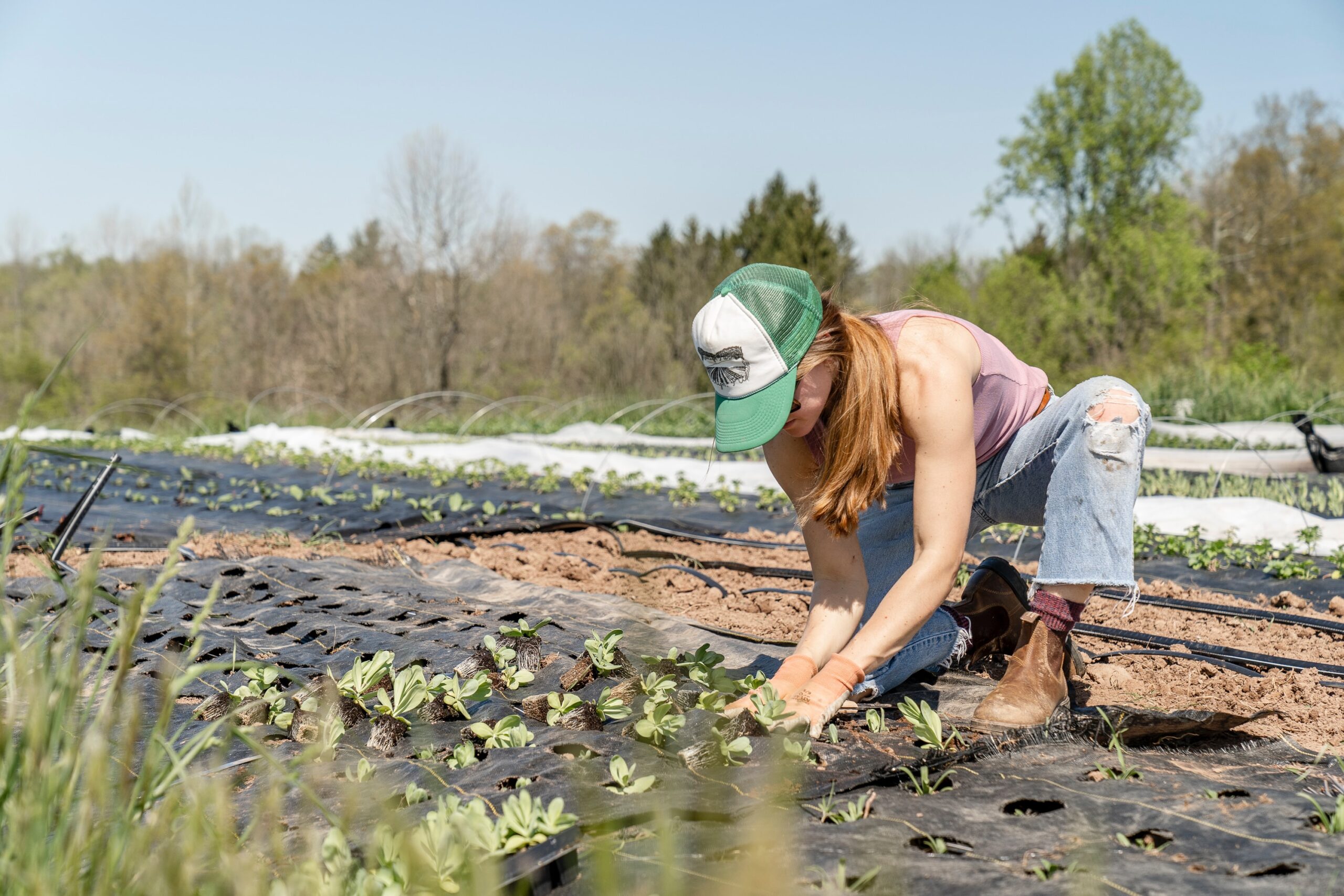Are you looking to secure permanent residence and employment in Canada? Discover the exciting opportunities offered by the Agri-Food Pilot extension and the temporary public policy allowing conversion of Canada visit visas to work permits.
The Canadian government recently announced an extension of the Agri-Food Pilot, a program designed to facilitate access to permanent residence for workers and their families in the agricultural and food industries.
The pilot, initially launched in May 2020, has been extended until May 14, 2025, recognizing the importance of supporting the labor market needs of the agri-food sector and strengthening Canada’s food supply system.
Immigration, Refugees and Citizenship Canada (IRCC) announced the extension of the Agri-Food Pilot Program up till May 14, 2025, with a target of welcoming around 3,000 applicants by 2025.
The extension of the Agri-Food Pilot is a significant step toward ensuring Canadian farmers and food processors have access to a skilled workforce.
This program was created to enable Agricultural & Food processing workers on Labour Market Impact Assessment (LMIA) work permits & 12 months of experience to convert to permanent residents.
By providing a pathway to permanent residence, the pilot helps attract and retain experienced workers in these industries.
It acknowledges the crucial role foreign workers play in the year-round activities of planting, harvesting, and food processing.
To further support employers and candidates, the Minister of Immigration, Refugees and Citizenship, the Honourable Sean Fraser, also announced several changes to be made to this pilot later this year:
- The removal of annual occupational caps allows more eligible candidates to apply, increasing the opportunity for skilled workers to transition to permanent residence.
- Additionally, new changes will be introduced in stages, including:
- Applicants in Canada without work experience but with relevant Education will be allowed to apply.
- Their family members of all participants will be able to access open work permits.
- Allowing unions to attest to a candidate’s work experience, and
- Vulnerable workers on open work permits without LMIA will be able to apply for Canada PR under the Agri-Food Pilot.
These changes aim to address ongoing labor needs in industries such as meat processing, mushroom production, greenhouse crop production, and livestock-raising.
By facilitating the transition to permanent residence for experienced workers, the pilot helps fill these labor gaps with full-time, year-round employees, ensuring the stability and growth of the agri-food sector.
Furthermore, the changes also reduce barriers for candidates, provide support to applicants and their families, and expand the pathway to permanent residence.
The Agri-Food Pilot complements Canada’s existing suite of economic immigration programs, demonstrating the country’s commitment to promoting the skills and labor required in the agriculture and agri-food sector.
It aligns with programs such as the Atlantic Immigration Program, the Rural and Northern Immigration Pilot, the caregivers’ pilots, the Global Skills Strategy, Express Entry, and the Provincial Nominee Program.
By attracting skilled workers and offering them a chance to settle in Canada, the pilot contributes to the growth of the economy and the overall well-being of the country.
What's Covered in This Article
Converting Canada visit visa to work permit
In addition to the Agri-Food Pilot, individuals interested in pursuing a general farm worker job and obtaining permanent residence in Canada can also take advantage of the public policy that allows certain visitors to apply for an employer-specific work permit.
This policy creates another avenue for candidates to capitalize on their opportunities.
Here’s how these two policies can be combined:
Public Policy for Employer-Specific Work Permit
The public policy allows visitors in Canada with valid visas to apply for an employer-specific work permit.
This means that these individuals who are already in Canada as visitors are eligible to transition to a work permit without having to leave the country.
Positive Approved Labour Market Impact Assessment (LMIA)
To apply for an employer-specific work permit, the employer must first obtain a positive approved LMIA from Employment and Social Development Canada (ESDC).
The LMIA confirms that hiring a foreign worker will not negatively impact the Canadian labor market and that there are no qualified Canadians available for the position.
This is a crucial step to demonstrate the need for hiring a general farm worker from abroad.
Job offer in an eligible industry and eligible occupation
Once the employer has a positive approved LMIA, they can offer the job in an eligible industry and eligible occupation, to a candidate who meets the requirements.
The job offer should be in line with the terms and conditions specified in the LMIA, including wages, working conditions, and duration of employment.
If you are interested in securing a job in occupations eligible for the Agri-Food Pilot and the Public Policy for Employer-Specific Work Permit, here are some tips to increase your chances:
- Research the industries:
Familiarize yourself with the eligible industries, such as meat product manufacturing, greenhouse production, and animal production.
Understand the nature of the work, required skills, and the demand for workers in these sectors.
- Enhance your skills:
Identify the specific skills and qualifications needed for the eligible occupations within these industries. Consider acquiring relevant training or certifications to improve your chances of employment.
- Networking:
Connect with individuals already working in the agri-food sector, attend industry events, join relevant professional associations, and engage in online communities.
Networking can help you gain insights, learn about job opportunities, and make valuable connections.
- Update your resume:
Tailor your resume to highlight relevant skills, experience, and qualifications that align with the eligible occupations. Emphasize any previous work experience in the agri-food industry or transferable skills that can be valuable in these roles.
- Job search platforms:
Utilize online job search platforms, industry-specific websites, and local job boards to find employment opportunities in the eligible occupations.
Regularly check for new postings and apply promptly.
- Research employers:
Identify companies and organizations involved in the eligible industries.
Research their operations, values, and current job openings.
Customizing your application to match the employer’s requirements can improve your chances of getting noticed.
- Engage recruitment agencies:
Consider reaching out to recruitment agencies that specialize in agricultural or food industry placements.
They can provide guidance, market your skills to potential employers, and connect you with relevant job opportunities.
- Gain Canadian work experience:
If possible, consider gaining work experience in Canada through temporary positions or internships.
This can help you familiarize yourself with the local industry practices and build a network of contacts.
- Improve language skills:
Fluency in English or French is essential for most job opportunities in Canada.
Invest time in improving your language skills through language courses, self-study, or language exchange programs.
- Stay updated:
Keep abreast of any updates or changes to the Agri-Food Pilot and the Public Policy for Employer-Specific Work Permit.
Regularly check official government websites, news releases, and immigration forums for the latest information.
Remember, securing a job in these occupations requires persistence, adaptability, and preparation.
By following these tips and actively pursuing opportunities, you can increase your chances of obtaining employment in occupations eligible for the Agri-Food Pilot and the Public Policy for Employer-Specific Work Permit.
Converting Canada Visit Visa to Canada Work Permit
The candidate, who is already in Canada as a visitor, can apply for an employer-specific work permit based on a valid job offer and positive LMIA.
This application will involve submitting the necessary forms, supporting documents, and paying the required fees.
It is important to ensure that the application is accurate and complete to increase the chances of approval.
Work Permit Approval and Transition to Permanent Residence
If the work permit application is approved, the candidate can start working in a job in an eligible industry and eligible occupation, for the specified employer.
Gaining at least 1 year’s work experience in this position will contribute to their eligibility for permanent residence through the Agri-Food Pilot or other immigration programs.
To apply for Canada permanent residence (PR) under the Agri-Food Pilot, you need to
- show eligible work experience in an eligible industry and eligible occupation, and
- have a job offer for full-time, non-seasonal work in an eligible industry and occupation in Canada (outside of Quebec)
Eligible industries
Industries are classified by the North American Industry Classification System (NAICS).
You can see specific industry definitions by searching the industry codes below on the NAICS website.
Your employer needs to include the industry code in your job offer.
Eligible industries under the pilot are:
- meat product manufacturing (NAICS 3116)
- greenhouse, nursery and floriculture production, including mushroom production (NAICS 1114)
- animal production, excluding aquaculture
- cattle ranching and farming (NAICS 1121)
- hog and pig farming (NAICS 1122)
- poultry and egg production (NAICS 1123)
- sheep and goat farming (NAICS 1124)
- other animal production (NAICS 1129)
Eligible occupations
Occupations are classified by the National Occupational Classification (NOC) code.
You can check the duties for each occupation by searching the NOC website.
Eligible occupations for each eligible industry are listed below.
For meat product manufacturing (NAICS 3116), eligible occupations are
- NOC 63201 – Butchers – retail and wholesale
- NOC 65202 – Meat cutters and fishmongers – retail and wholesale
- NOC 94141 – Industrial butchers and meat cutters, poultry preparers and related workers
- NOC 82030 – Agricultural service contractors and farm supervisors
- NOC 84120 – Specialized livestock workers and farm machinery operators
- NOC 85100 – Livestock labourers
- NOC 95106 – Labourers in food and beverage processing
For greenhouse, nursery and floriculture production, including mushroom production (NAICS 1114), eligible occupations are
- NOC 82030 – Agricultural service contractors and farm supervisors
- NOC 84120 – Specialized livestock workers and farm machinery operators
- NOC 85100 – Livestock labourers
- NOC 85101 – Harvesting labourers
For animal production, excluding aquaculture (NAICS 1121, 1122, 1123, 1124 and 1129), eligible occupations are
- NOC 82030 – Agricultural service contractors and farm supervisors
- NOC 84120 – Specialized livestock workers and farm machinery operators
- NOC 85100 – Livestock labourers
- NOC 85101 – Harvesting labourers
Farm Worker Jobs in Canada with LMIA & Hiring from Outside Canada
BRAR BROTHERS HOLDINGS LTD. – 2 vacancies for Farm manager
Ghag and son farm inc – 10 vacancies for General labourer – farm
Mahil Farms Ltd. – 15 vacancies for Farm labourer
AMBER FARMS – 2 vacancies for Farm worker, vegetables
Silver Corners Inc – 2 vacancies for Farm worker
Dhaliwal Vineyard – 7 vacancies for General labourer – farm
Bakerview Farms (2002) Ltd – 6 vacancies for General farm worker
Sandhills Seed Potatoes Ltd. – 2 vacancies for Crop farm labourer – harvesting
Riedbow Dairy Ltd. – 4 vacancies for Dairy farm worker
Wilma Farms Canada Ltd – 2 vacancies for General farm worker – livestock
Crimson Lane Farms Inc – 2 vacancies for Pork production technician
Stanton Bros Ltd – 2 vacancies for Dairy herdsperson
Stanton Bros Ltd – 5 vacancies for General Farm Worker
Riverside Dairy Ltd. – 8 vacancies for Dairy farm worker
Agence de recrutement et de placement des employés Iris Inc. (Recruitment Agency)- 10 vacancies for Harvest hand
PJ POULTRY LTD – 2 vacancies for Hatchery worker – poultry
Permanent Residence Application
Once the candidate has accumulated the required work experience in an eligible industry and eligible occupation, they can apply for permanent residence through the Agri-Food Pilot or other relevant immigration programs.
This application will involve meeting the eligibility criteria, providing supporting documents, and paying the applicable fees.
Successfully obtaining permanent residence will provide long-term stability and benefits in Canada.
Conclusion
By combining the Agri-Food Pilot and the public policy for employer-specific work permits, individuals can maximize their chances of securing a general farm worker job, gaining work experience, and eventually obtaining permanent residence in Canada.
It is essential to stay updated on the specific requirements and procedures of both policies, seek professional advice if needed, and ensure compliance with immigration regulations throughout the process.
Taking advantage of these opportunities allows individuals to build a strong foundation in the Canadian agricultural sector, contribute to the country’s food supply system, and establish a prosperous future for themselves and their families in Canada.



